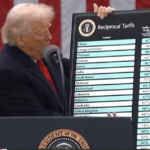As 2024 unfolds, the return of Donald Trump to the White House is expected to create new strains on the transatlantic alliance, especially within NATO. Trump’s anticipated presidency is likely to see heightened pressure on European nations to increase defense spending, with the possibility of using the threat of downgrading U.S. support for NATO as leverage. Amid rising global instability and the ongoing threat from Russia, Trump’s stance may hold significant weight.
Trump recently reiterated his desire to quickly end the war in Ukraine, even discussing the possibility of meeting Russian President Vladimir Putin early in his new term to restore diplomatic relations. This marks a stark contrast to the current leadership in Europe, where nations are preparing for Trump’s return while also competing for his attention. French President Emmanuel Macron has already invited Trump to Paris for the reopening of the Notre-Dame Cathedral, while Britain has appointed Lord Peter Mandelson as its new ambassador to Washington, aiming to strengthen ties with the U.S. In contrast, Germany faces political turmoil with upcoming elections, and Trump has shown a preference for populist leaders like Italy’s Giorgia Meloni and Hungary’s Viktor Orbán.
This shifting dynamic underscores the fragility of the post-World War II global order, which has long been underpinned by the U.S. and its European allies. Reflecting on the 1941 Christmas Eve meeting between President Franklin Roosevelt and British Prime Minister Winston Churchill, it is clear that the foundations of the “West” were once built on a shared commitment to democracy and freedom, even in the darkest of times. That historic summit marked the beginning of a strategy that ultimately led to the defeat of Nazi Germany, a partnership forged despite significant differences between the two leaders.
Churchill’s visit to Washington in 1941 came after the Japanese attack on Pearl Harbor, which brought the U.S. into World War II. His stay at the White House was marked by a mix of personal quirks and profound political discussions, with both leaders pushing aside their differences to form a united front. In a moment of crisis, Roosevelt and Churchill devised a strategy to prioritize defeating Nazi Germany, laying the groundwork for future cooperation between the U.S. and Europe.
As Trump prepares to return to the Oval Office, the possibility of a new era of U.S.-European relations looms. The same questions of unity and cooperation that Roosevelt and Churchill confronted in the 1940s may once again arise, with Europe facing the challenge of aligning with a president whose approach to foreign policy and NATO remains uncertain. The transatlantic alliance, once a bedrock of global stability, faces a potentially pivotal moment in its history.









